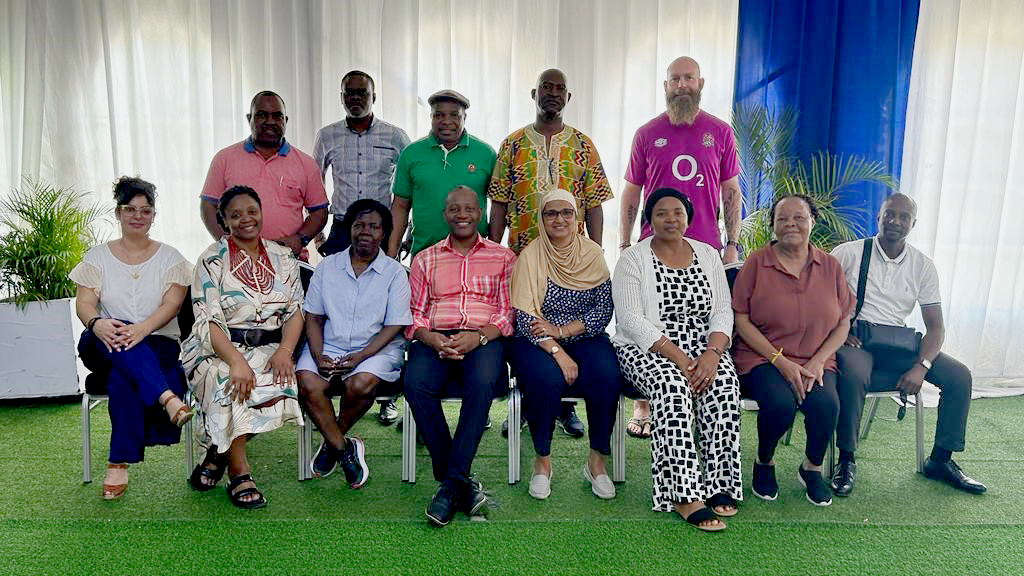Contact
Educational Development Unit (EPU)
The Division of Learning and Digitalisation
Email
epu@slu.se
As a way to close this year’s activities, trainers within the UEM-Sida bilateral research programme Quality Assurance of Research and post-graduate Training (QuART) were invited to participate in a three-day retreat, aimed at evaluating and taking stock of lessons learned in the bilateral collaboration, which started in 2018.
Since its inception, SLU’s Unit for Educational Development (EPU) has been engaged in the programme by training doctoral supervisors and supporting the development of courses in generic skill for both masters and PhD students at the Mozambican institution Universidade Eduardo Mondlane (UEM). Through a Training-of-Trainers model, 13 supervision trainers have developed their competences and skills in quality doctoral supervision. They in turn have contributed to the further training of over 60 doctoral supervisors. Trainers in generic skills have developed curricula for masters and PhD courses have been developed in the areas of academic writing, ethics, and critical thinking, among others.
From 6-8 December 2023, representatives from SLU and UEM met about 30km North of Maputo to reflect on lessons learned from this collaboration, share best practices, and consider how to apply them to upcoming activities. Henrik Viberg and Natalie Jellinek, both SLU Educational Developers, were present in Maputo to partake in the discussions and evaluate their experiences: “it has been a learning journey both for us as individuals and for SLU as a collaborating organization” said Jellinek. “We have worked alongside great partners and think we have managed to in partnership develop a critical mass for the training of doctoral supervisors and the development of generic skills” noted Viberg.
 Henrik Viberg, Rehana Capurchande, Natalie Jellinek, Tufaria Mussá
Henrik Viberg, Rehana Capurchande, Natalie Jellinek, Tufaria Mussá
Participating trainers also reflected on their main take-aways from both the project and the retreat. Tufária Mussá, a researcher and trainer from the UEM Faculty of Medicine noted that her biggest insight was linked to “the importance of engaging more colleagues at UEM to be trained and attend supervision courses”, highlighting the importance of such courses to the university. Rehana Capurchande, researcher and trainer from the UEM Faculty of Letters and Social Sciences noted the fact that “being a trainer is a process of adapting ourselves to be more flexible and acting as a chameleon, looking to our context and profile of our trainees, constantly tailoring and retailoring our courses”. The five-year project has given EPU many important insights contributing to the further development of Internationalization at Home practices within SLU, both for teaching staff and supervisors. Examples of this include the development of new teaching materials and research articles and the appreciation and understanding of colleagues’ innovative practices when teaching students under challenging circumstances, such as a global pandemic and limited material and structural resources. This activity concludes EPU’s formal engagement in this program, although the ongoing phase of the Swedish support to UEM, at SLU coordinated by SLU Global, will continue until 2025.
 Group photo of supervisor trainers team
Group photo of supervisor trainers team
The UEM-Sweden collaboration is a bilateral programme financed by the Swedish International Development Cooperation Agency (Sida). Sweden has collaborated with UEM since 1978, and the current phase of the Swedish support to UEM will run until December 2025.
The QuART project is a Key Supporting Element in the current phase, coordinated by SLU Global. The overall aim of the QuART initiative is to strengthen the capacity to generate scientific knowledge and increase research output and innovation for national and regional development in line with UEM vision and mission of transforming itself to a research-led university. In addition to the sub components on training of supervisors and generic skills training, it also includes the development of double degree guidelines, academic managers’ training and strengthening of quality assurance systems at UEM. The QuART project is therefore of key importance and aims at building capacity to ensure the quality of training and research. At SLU, the QuART project had also also engaged the Group for Sustainable Leadership in the Academy (GHAL), SLU Grants office, Division of Planning and the Division of Educational Affairs.
For more information about the bilateral collaboration with Mozambique, and all research and key areas, please go to the International Science programme at Uppsala University, who is the coordinating body of the programme.
Email
epu@slu.se